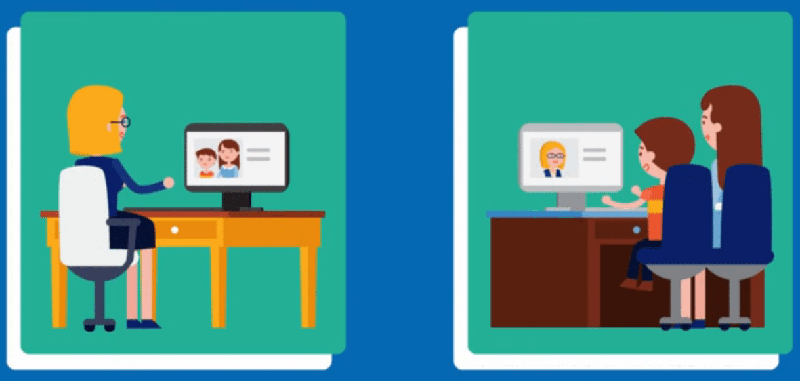The Power of Online Learning
Written by Sandie Barrie Blackley, Speech-Language Pathologist
Published on May 18, 2015
Having a child who struggles with reading, writing and spelling can be overwhelming. You may have tried everything from special teachers at school to private tutors with no success. Fortunately, the age of technology not only helps us better understand what works to help struggling readers and writers, but it makes those intervention methods available online, to anyone with an internet connection.
Countless studies have shown online learning to be a superior teaching medium. In a 2010 U.S. Department of Education Report, it was found that “students who took all or part of their courses online performed better than those who took the same course solely in a traditional face-to-face environment”[i]. The report also found that “Instruction that combined elements of both online and face-to-face delivery had a larger advantage than instruction provided solely online”i. This is one of the main reasons Lexercise online therapy combines one-on-one live therapy sessions with individual practice games with parent training and resources. It’s a powerful combination, so children struggling with reading, writing and spelling see results in months not years!
 Online learning is successful for many reasons. First, it is engaging. I am sure you can remember dozing off in class or doodling in your notebook because the teacher wasn’t capturing your attention. But children who are struggling with reading and writing face particular difficulties staying engaged in classroom settings, where the pace and methods are typically designed for students with average or above reading skills. In contrast, online learning gives the student an opportunity to develop a personal relationship with an educational therapist with extensive experience engaging and motivating struggling readers and writers.
Online learning is successful for many reasons. First, it is engaging. I am sure you can remember dozing off in class or doodling in your notebook because the teacher wasn’t capturing your attention. But children who are struggling with reading and writing face particular difficulties staying engaged in classroom settings, where the pace and methods are typically designed for students with average or above reading skills. In contrast, online learning gives the student an opportunity to develop a personal relationship with an educational therapist with extensive experience engaging and motivating struggling readers and writers.
Second, online learning is private so it can more easily put the student at ease. It can take place in your home and on your schedule. This means that your child can sit in a quite, familiar place and learn without the distractions of a classroom or the scrutiny of peers.
Third, online learning is easily personalized. Beginning with an assessment of the child’s reading, spelling and writing skills, the therapist is able to create a teaching plan addressed to each student’s unique needs. Concepts are introduced using interactive, memorable online resources and then practiced in brief, online daily exercises, with feedback for the student, the therapist and the parent. Online learning proceeds at your child’s pace, so learning is solidified before moving on to new concepts.
Kim Wentzlaff, Mom of a Lexercise student, summarizes these benefits nicely by saying, “I love that we can do the therapy in the comfort of our own home at a time that fits our schedule. I also love the daily practice with the online games and partnership with our clinical educator.”
Online technologies give struggling readers and their families a new level of control in managing learning, and that promises to be very good news for the future.
To learn more about Lexercise’s online approach to helping struggling readers and writers, see the video here.
[i] Means, Barbara, Yukie Toyama, Robert Murphy, Marianne Bakia, and Karla Jones.
“Evaluation of Evidence-Based Practices in Online Learning.”Evaluation of Evidence-Based Practices in Online Learning (2010): n. pag.Home Educators Resource Directory. Web. 8
May 2015.
Improve Your Child’s Reading
Learn more about Lexercise today.
Schedule a FREE
15-minute consultation


